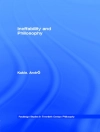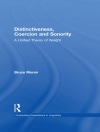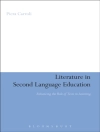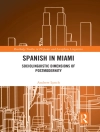Research Paper (postgraduate) from the year 2013 in the subject Speech Science / Linguistics, grade: 67, University of Salford, language: English, abstract: By the virtue of an experimental non-fictive interjection in didascalia, basically as a meta-textual liberation from narrative Drama (scripts read rather than performed) and which is in due to be tackled in this essay on a verge of criticism; rhetorical inference, that which is intrinsic within the ideal scarcity of dialogical perlocutionary acts (since stage directions are mostly descriptive) could be claimed – under formal theoretical parameters – to propose one of independent chronologies or otherwise a differed diegetic timing against the original immediacy of authorship, if we could estrange the absent author from ontological audience. In other words, if didascalia are mostly known as to be structurally reflexive in correspondence to the linearity of time and actions (fictitious variables) whether to performers on stage, or to readers off-stage-through a medium coder of signifiers (author) would the authorial upmost reference retain the same mode of diegetic liberation when dualized; according to which signature (before dialogue and thus before reference) and omniscience (off dialogue and hence unreliable) manifest a ‘space’ of didascalic autology*?
On the alert of a transitional stage-direction thus from the fiction of narrative didascalia to a non-fiction of its meta-textuality, discrepancies appertaining the metaphoricity of its dialogical rhetoric are due to be rehearsed in between semiotic topographies, after which the non-dialogic rhetoric could be timed. Since the meta-textual metaphorical recognition of
dramatis personae in modern drama is seemingly subjective to the omniscient rhetorical method of narration by virtue of unreliable representational comparability of signifiers (between what readers polarize by the prelocutionary force of dramatis personae against the descriptive extended allegory of the author) a syntactic “identity” seems to have been historically repressed; which, though it could be recognized as a conceptual metaphor – referring to the understanding of one idea, or as a conceptual domain, in terms of another – it proposes most fundamentally a chronological shift of signs different from those in a given text. Such chronology does seem to lurk between the diegesis of inference and the mimesis of reference that all together await a centripetal duality of rhetorical augmentation in didascalia itself (away from a given performance) that permits a meta-textual liberation of lexical heterodiegtic directions.
Yehia Abd El Azeem
Introduction to Didascalic Semiotics [EPUB ebook]
A Treatise on Irreversible Logic
Introduction to Didascalic Semiotics [EPUB ebook]
A Treatise on Irreversible Logic
Cumpărați această carte electronică și primiți încă 1 GRATUIT!
Limba Engleză ● Format EPUB ● Pagini 115 ● ISBN 9783656817932 ● Mărime fișier 1.9 MB ● Editura GRIN Verlag ● Oraș München ● Țară DE ● Publicat 2014 ● Ediție 1 ● Descărcabil 24 luni ● Valută EUR ● ID 4037019 ● Protecție împotriva copiilor fără












